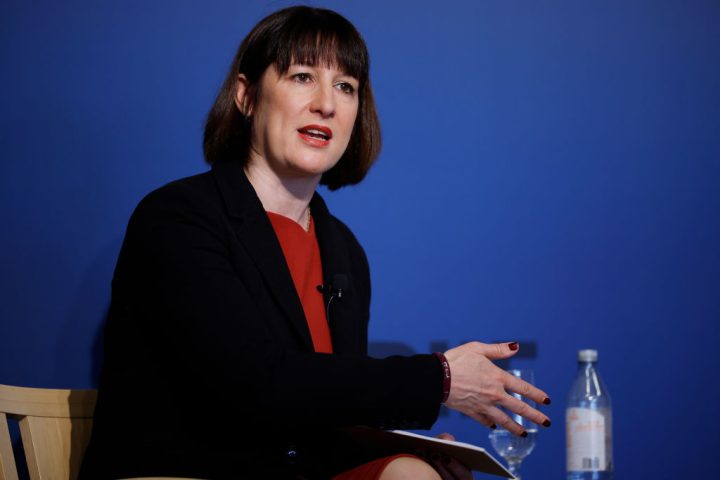Is Labour U-turning on another big spending pledge? Last week, shadow chancellor Rachel Reeves scaled back the party’s £28 billion green energy spending plan to take account of a tougher economic picture. Today, reports suggest the party is planning a similar retreat on childcare, dropping plans for a universal system in favour of means testing.
Reeves has been warning them that the Tories are upping their attacks on Labour’s spending plans
The reality is a bit more complicated. Shadow education secretary Bridget Phillipson has made a big play about the party’s childcare offer to parents, to the extent that she told the Sunday Times that it would be ‘like the change that we saw post-1945 with the creation of the NHS’. Perhaps the NHS reference has led some to believe that early years provision under a Labour government would be entirely free. Party sources, though, say Labour has never made a specific pledge of universal free childcare and that it is examining a number of policy options for its manifesto including possible targeting of support.
What has definitely happened, though, is that Rachel Reeves has been bearing down on all shadow ministers recently. She has been warning them that the Tories are upping their attacks on Labour’s spending plans and that they cannot over-promise or make unilateral pledges. When some frontbenchers have done this, even on minor points of detail, I understand that the shadow chancellor’s team are quickly on the phone to reprimand the colleague, to the extent that some shadows have been told they aren’t allowed to talk about that area again.
That Labour are being accused of watering down something they never committed to in the first place reveals that the party is currently experiencing a clash between expectations and the reality that it wants to go into the next election promising. It does not, as it did in 2019, plan to promise a free pony for everyone, but rather give voters the sense it would be worth trusting to deliver the more realistic pledges it is offering. The problem is that selling this in individual policy areas can be quite difficult because there is still a tension between sounding responsible and sounding interesting.







Comments